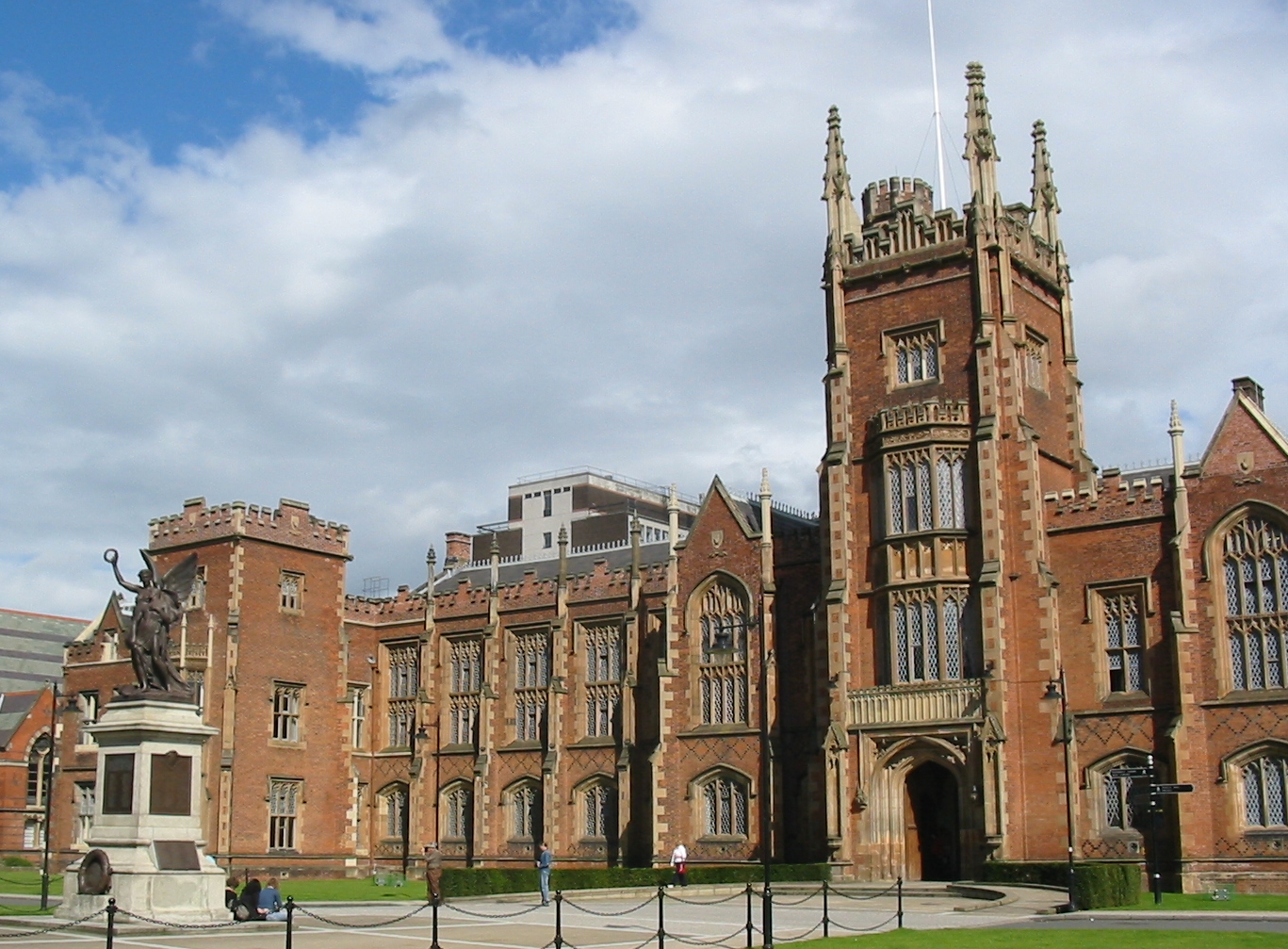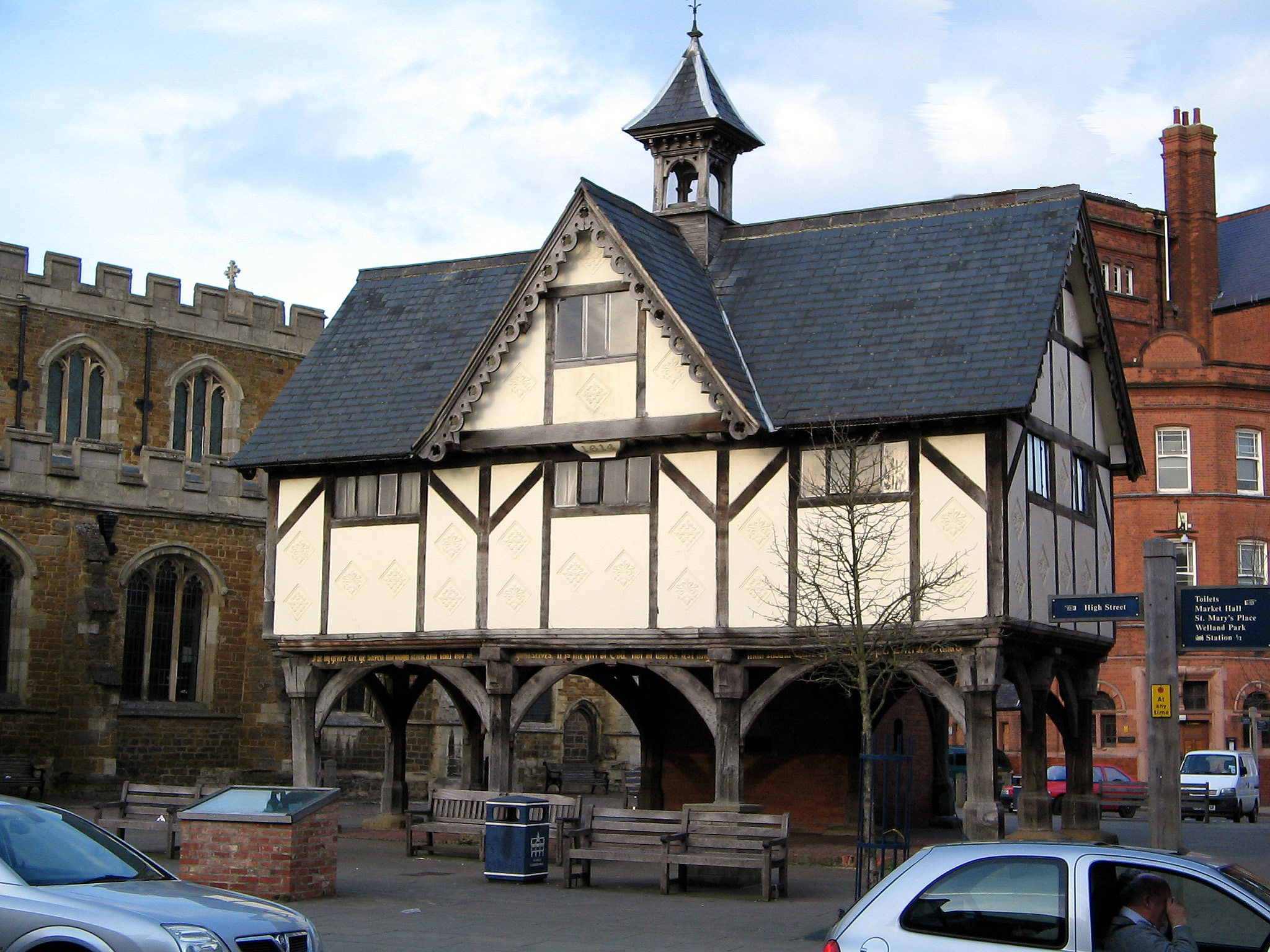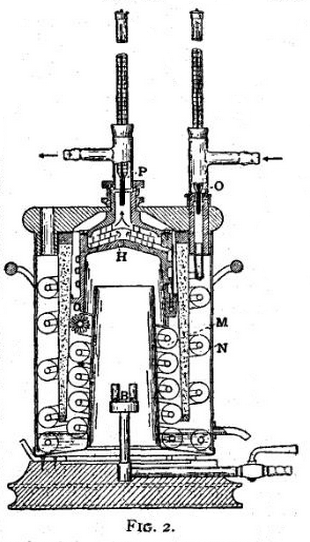|
Quain Professor
Quain Professor is the professorship title for certain disciplines at University College London, England. The title honours Richard Quain, who became Professor of Anatomy in 1832 at what would become University College, London. Quain left a legacy to the University to endow professorships in four subjects in 1887. He intended that the funding should recognise his brother, John Richard Quain, as well as himself. The Burhop prize for Physics, Applied Physics or Mathematics/Physics is also drawn from these funds. The Quain professorships cover Botany, English language and literature, Jurisprudence, and Physics. Botany *Francis Wall Oliver (1890–1925) * Edward J. Salisbury (1929–1943) *William Pearsall (1944–1957) *Dan Lewis (1958-1978) *Peter Robert Bell (1979-?) English *William Paton Ker (1889–1920) *Raymond Wilson Chambers (1922–1949) *Albert Hugh Smith (1949–1963) *Randolph Quirk (1968–1981) * Sidney Greenbaum (1983–1990) *David Trotter (1991–2001) *Rosemary As ... [...More Info...] [...Related Items...] OR: [Wikipedia] [Google] [Baidu] |
University College London
, mottoeng = Let all come who by merit deserve the most reward , established = , type = Public research university , endowment = £143 million (2020) , budget = £1.544 billion (2019/20) , chancellor = Anne, Princess Royal(as Chancellor of the University of London) , provost = Michael Spence , head_label = Chair of the council , head = Victor L. L. Chu , free_label = Visitor , free = Sir Geoffrey Vos , academic_staff = 9,100 (2020/21) , administrative_staff = 5,855 (2020/21) , students = () , undergrad = () , postgrad = () , coordinates = , campus = Urban , city = London, England , affiliations = , colours = Purple and blue celeste , nickname ... [...More Info...] [...Related Items...] OR: [Wikipedia] [Google] [Baidu] |
Glanville Williams
Glanville Llewelyn Williams (15 February 1911 – 10 April 1997) was a Welsh legal scholar who was the Rouse Ball Professor of English Law at the University of Cambridge from 1968 to 1978 and the Quain Professor of Jurisprudence at University College, London, from 1945 to 1955. He has been described as Britain's foremost scholar of criminal law. Early life and education Williams was born on 15 February 1911 in Bridgend, Wales. He attended Cowbridge Grammar School (founded in 1608 by Sir Edward Stradling of St. Donat's Castle, Glamorgan) from 1923 - 27. He obtained a First in law at University College of Wales. He was called to the Bar and became a member of Middle Temple in 1935. He was a Research Fellow from 1936 to 1942 and completed his Doctor of Philosophy degree in law at St John's College, Cambridge, where he was examined by the Vinerian Professor of English Law at Oxford, Sir William Searle Holdsworth, who was at the time, a Fellow of St John's College, Oxford. Hold ... [...More Info...] [...Related Items...] OR: [Wikipedia] [Google] [Baidu] |
Gabriel Aeppli
Gabriel Aeppli, PhD FRS (born 25 November 1956 in Zurich) is a Swiss-American electrical engineer, co-founder of the London Centre for Nanotechnology and professor of physics at ETH Zürich and EPF Lausanne, and head of the Synchrotron and Nanotechnology department of the Paul Scherrer Institute, also in Switzerland. He has contributed to spectroscopy on the magnetism of disordered systems and on high-temperature superconductors and antiferromagnetism identifying magnets with tuneable quantum fluctuations that can be used to study the transition between classical and quantum behavior. His work has helped to demonstrate that quantum spin fluctuations underlie exotic superconductivity. He has been recipient of multiple honors and he has more than 290 peer review publications, 14,054 total citations by 9,542 documents and h-index of 70. Life Son of mathematician Alfred Aeppli and Dorothee Aeppli, Gabriel was born in Zürich 25 November 1956. Shortly after birth, Gabriel Aep ... [...More Info...] [...Related Items...] OR: [Wikipedia] [Google] [Baidu] |
Franz Ferdinand Heymann
Franz Ferdinand Heyman (17 August 1924 – 28 March 2005) was a British physicist who served as Quain Professor from 1975–80 at University College London. He was featured in Who's Who in British Scientists, Who's Who in Atoms and Who's Who in Technology. Education and early career He earned his BsC at University of Cape Town The University of Cape Town (UCT) ( af, Universiteit van Kaapstad, xh, Yunibesithi ya yaseKapa) is a public research university in Cape Town, South Africa. Established in 1829 as the South African College, it was granted full university statu ... in 1944 and his Ph.D University College London in 1953 before serving as an assistant lecturer from 1950–52 before being promoted as lecturer from 1952–1966 at University College London. Volumes 1-3, 1984 ... [...More Info...] [...Related Items...] OR: [Wikipedia] [Google] [Baidu] |
Harrie Stewart Wilson Massey
Sir Harrie Stewart Wilson Massey (16 May 1908 – 27 November 1983) was an Australian mathematical physicist who worked primarily in the fields of atomic and atmospheric physics. A graduate of the University of Melbourne and Cambridge University, where he earned his doctorate at the Cavendish Laboratory, Massey became an independent lecturer in Mathematical Physics at the Queen's University of Belfast in 1933. He was appointed Goldsmid Professor of Applied Mathematics at University College London, in 1938. During the Second World War, Massey worked at the Admiralty Research Laboratory , where he helped devise countermeasures for German magnetic naval mines, and at the Admiralty Mining Establishment in Havant, where he helped develop British naval mines. In 1943, Mark Oliphant persuaded the Admiralty to release Massey to work on the Manhattan Project. He joined Oliphant's British Mission at the Radiation Laboratory at the University of California, where they worked on the ... [...More Info...] [...Related Items...] OR: [Wikipedia] [Google] [Baidu] |
Edward Andrade
Edward Neville da Costa Andrade FRS (27 December 1887 – 6 June 1971) was an English physicist, writer, and poet. He told ''The Literary Digest'' his name was pronounced "as written, i.e., like ''air raid'', with ''and'' substituted for ''air''." In the scientific world Andrade is best known for work (with Ernest Rutherford) that first determined the wavelength of a type of gamma radiation, proving it was far higher in energies than X-rays known at the time. In popular culture he was best known for his appearances on The Brains Trust. Life Edward Neville Andrade was a Sephardi Jew, his family having arrived in London from Portugal during the Napoleonic era, and was a descendant of Moses da Costa Andrade (not Moses da Costa as is sometimes stated). da Costa Andrade was his 2nd great-grandfather, a feather merchant in London's East End. The surname "Andrade" might nevertheless be of Portuguese origin (see notes on original pronunciation) born and raised in London he attended St. ... [...More Info...] [...Related Items...] OR: [Wikipedia] [Google] [Baidu] |
William Henry Bragg
Sir William Henry Bragg (2 July 1862 – 12 March 1942) was an English physicist, chemist, mathematician, and active sportsman who uniquelyThis is still a unique accomplishment, because no other parent-child combination has yet shared a Nobel Prize (in any field). In several cases, a parent has won a Nobel Prize, and then years later, the child has won the Nobel Prize for separate research. An example of this is with Marie Curie and her daughter Irène Joliot-Curie, who are the only mother-daughter pair. Several father-son pairs have won two separate Nobel Prizes. shared a Nobel Prize with his son Lawrence Bragg – the 1915 Nobel Prize in Physics: ''"for their services in the analysis of crystal structure by means of X-rays"''. The mineral Braggite is named after him and his son. He was knighted in 1920. Biography Early years Bragg was born at Westward, near Wigton, Cumberland, England, the son of Robert John Bragg, a merchant marine officer and farmer, and his wife Mary n� ... [...More Info...] [...Related Items...] OR: [Wikipedia] [Google] [Baidu] |
Frederick Thomas Trouton
Frederick Thomas Trouton FRS (; 24 November 1863 – 21 September 1922) was an Irish physicist known for Trouton's rule and experiments to detect the Earth's motion through the luminiferous aether. Life and work Trouton was born in Dublin on 24 November 1863, the youngest son of the wealthy and prominent Thomas Trouton. He attended Royal School Dungannon and went on to Trinity College, Dublin in 1884, where he studied engineering and physical science. While still an undergraduate student, Trouton observed a relationship between boiling points and energies of vaporisations, which he presented in two short papers. He found the change of entropy per mole for vaporisation at a boiling point is constant, or expressed mathematically ΔSm,vap = 10.5 R (where R is the ideal gas constant). This became known as Trouton's rule and, despite having some exceptions, is used to estimate the enthalpy of vaporisation of liquids whose boiling points are known. Trouton himself belittled his d ... [...More Info...] [...Related Items...] OR: [Wikipedia] [Google] [Baidu] |
Hugh Longbourne Callendar
Hugh Longbourne Callendar (18 April 1863 – 21 January 1930) was a British physicist known for his contributions to the areas of thermometry and thermodynamics. Callendar was the first to design and build an accurate platinum resistance thermometer suitable for use, which allowed scientists and engineers to obtain consistent and accurate results. He conducted experiments and researched thermodynamics, producing and publishing reliable tables on the thermodynamic properties of steam used for calculations. Callendar worked with multiple institutions during World War I, helping to research and develop useful tools for the Navy. Callendar received awards such as the James Watt Medal of the Institution of Civil Engineers (1898) and the Rumford Medal (1906). He was elected as a Fellow of the Royal Society, and later a member of the Physical Society of London. Callendar was also nominated for the Nobel Prize in Physics three times. He died at home in Ealing, after an operation in 193 ... [...More Info...] [...Related Items...] OR: [Wikipedia] [Google] [Baidu] |
George Carey Foster
George Carey Foster FRS (October 1835 – 9 February 1919) was a chemist and physicist, born at Sabden in Lancashire. He was Professor of Physics at University College London, and served as the first Principal (salaried head of the College) from 1900 to 1904. The Carey Foster bridge is named after him. References * * External linksThe Carey Foster Bridge description and image at Kenyon College Kenyon College is a private liberal arts college in Gambier, Ohio. It was founded in 1824 by Philander Chase. Kenyon College is accredited by the Higher Learning Commission. Kenyon has 1,708 undergraduates enrolled. Its 1,000-acre campus is ... {{DEFAULTSORT:Foster, Carey British chemists British physicists 1835 births 1919 deaths People from Ribble Valley (district) Fellows of the Royal Society Presidents of the Physical Society Alumni of University College London Academics of University College London Scientists from Lancashire ... [...More Info...] [...Related Items...] OR: [Wikipedia] [Google] [Baidu] |
John Tasioulas
John Tasioulas (born 18 December 1964) is a Greek-Australian moral and legal philosopher. He is the inaugural Director of the Institute for Ethics in AI (artificial intelligence), and Professor of Ethics and Legal Philosophy, Faculty of Philosophy, University of Oxford.https://www.ox.ac.uk/news/2020-09-11-inaugural-director-and-academic-team-appointed-new-institute-ethics-ai, 12 October 2020 He holds dual Australian and British citizenship. Biography John Tasioulas was born in Wollongong, New South Wales, in 1964. His parents, Konstantinos and Elpiniki Tasioulas, migrated to Australia from Dasyllio in the Grevena region of Greece. He was a student at Northcote High School and Melbourne High School. He completed undergraduate degrees in Philosophy and Law at the University of Melbourne and was the 1989 Rhodes Scholar for Victoria. Studying at Balliol College, he received a doctorate (D.Phil in Philosophy) from Oxford University for a thesis on moral relativism which was supervise ... [...More Info...] [...Related Items...] OR: [Wikipedia] [Google] [Baidu] |
Ross Harrison (academic)
Ross Harrison (born 1943) is a British philosopher and academic. He served as Provost of King's College, Cambridge from 2006 to 2013. He was previously Quain Professor of Jurisprudence at University College London. Harrison's books include "Bentham" (RKP, 1983), which explores the philosophy of Jeremy Bentham Jeremy Bentham (; 15 February 1748 Old_Style_and_New_Style_dates">O.S._4_February_1747.html" ;"title="Old_Style_and_New_Style_dates.html" ;"title="nowiki/>Old Style and New Style dates">O.S. 4 February 1747">Old_Style_and_New_Style_dates.htm .... References 1943 births Living people 21st-century British philosophers Academics of the University of Cambridge Fellows of King's College, Cambridge Academics of University College London Provosts of King's College, Cambridge {{UK-philosopher-stub ... [...More Info...] [...Related Items...] OR: [Wikipedia] [Google] [Baidu] |


